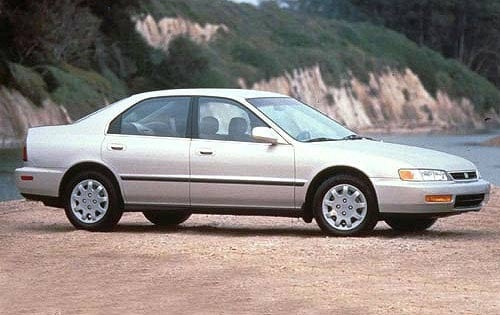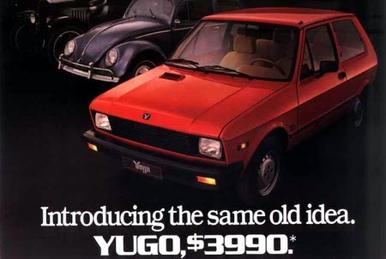With $4000.00 cash in hand the stage was set to get our Phase 1 car on the "Drive Free for Life" project. After searching for a couple of weeks straight and bringing a car to my mechanic to check out with a thumbs down we found a winner. My wife saw a 1994 Honda Accord with a new engine for sale on craigslist for $3500.00 . The car was on the other side of the city (80 miles away) but, after calling the guy selling the car it seemed like a good deal which needed to be looked into more deeply.


Stock Photo of the 1994 Honda Accord
The first thing that made me interested was the new engine. I spoke with the seller and he explained it was installed 10K miles ago and he was using it as a daily commuter locally. The MPG is 22 City / 29 Hwy (25 combined) This would be a big change in gasoline usage (2000 Ford Windstar 15 City / 21 Hwy (21 combined)) To put this in real terms:
I drive 66 miles round trip to and from work daily which is 17,160 miles per year.
Realistically I'm getting about 19 MPG on the Ford which is about $3161 in gas per year compared to the Honda at $2071 per year. This is with $3.50 per gallon assumption and the Honda at 29 mpg. The difference is $1090 per year. So in about 3.5 years the initial cost would pay off for itself. This is an important factor because in 1 year I can resell the car for less then what I spent on it and still have a positive cash for the year.
Initial cost $3500
Gas Savings - 1000
---------------------
Before real loss $2500
What if I were to instead put the gas savings into the Phase 2 car fund to accelerate the quality upgrade?
That is $90 per month bonus on top of the regular savings.
The deal starts to look more interesting for me with these type of numbers. The big risks I saw was the car was over 10 years old (the age of reliability drop) and was the guys honest about the engine being new rather then rebuild. Both cars my wife and I have are over 10 years old and over 200,000 miles and both brands were on the bottom of the bucket of reliability. The 1994 Honda Accord ranked top on reliability, I saw many others for sale with excess of 250,000 miles at the same price as my target, and I had a friend who still had one in pretty bad shape still as a daily commuter so the confidence in this model and year was up.
I saw the car with a friend and the car looked good except for the tires. The engine looked like a new car engine including all new wiring. I talked him down $100 for the tires and we became the owners.
About 5 miles down the road the car started to overheat. I guessed it had to be something stupid and I was right, one of the coolant lines had came off due to the clamp not being tight. It was a big sign of relief because you have the immediate knee jerk reaction to think you made a bad deal or got ripped off.
At the 10 mile mark the car started to vibrate at about 50 miles per hour and then get good again at 65 miles per hour. I hoped it was not the steering.
When I got home I web searched for any issues I saw with this model. The world wide web is a great money saver. I saw it was caused by not round tires. (I knew I needed to replace them anyway.) I also had the advantage of a friend who had first had knowledge of the year and model car.
So the Phase 1 car was acquired; how good a deal it was is yet to be determined but, the momentum is building to get to free car land.

